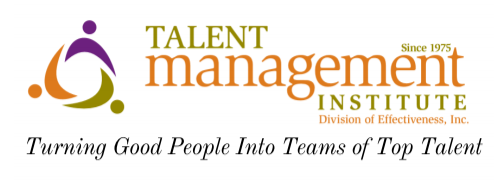By Bob Moore, CMC
 Today, attracting and retaining top talent is one of the most difficult challenges facing all organizations. All organizations must deal with this dilemma— public, private, government, not-for-profit, small businesses and Fortune 500 companies.
Today, attracting and retaining top talent is one of the most difficult challenges facing all organizations. All organizations must deal with this dilemma— public, private, government, not-for-profit, small businesses and Fortune 500 companies.
A recent article in the Hartford Business Journal emphasized that top talent is particularly important in their public schools. Having a strong leader — and keeping them for the long term — can be the difference between a chronically low-performing school turning itself around or spinning its wheels. Currently, 16 percent of school principals in Hartford leave each year—which happens to be better than the national average.
In education, a great school principal must be able to cast the vision while also defining and inspiring work on the details. In Hartford, and in many other school systems, the specific role of a school leader is multi-faceted. In addition to being an effective educator, he or she also has to fulfill the following roles:
- Marketer: market the services of the school to parents, the community and teachers;
- Mentor/Coach: develop teachers and administrative staff to be the next generation of leaders;
- Trusted Partner: manage the tenuous relationship between teachers, politicians, and parents while keeping the interests of the students paramount.
The article noted that in the private sector, the leaders in charge of businesses are meant to thrive and grow in relation to the growth of the business. Often those with outstanding skills earn an opportunity to do even more. School leaders who have accomplished something relatively quickly, especially in challenging circumstances, become extremely marketable. Keeping them becomes the challenge for a school district like Hartford and could be for your local district too.
Devi Mohanty, a member of the board of directors of Achieve Hartford!, offered the following specific recommendations to retain top school leaders:
- Recognize gaps and provide development opportunities to help build skills.
- Allocate resources that correlate to the level of challenge facing these leaders.
- Provide strong incentives for leaders to stay.
- Ensure that school leaders know how much they are valued and provide feedback on what the organization is doing to support them.
These recommendations incorporate best-practices that can apply to the private sector.
Click here to get the special report, Talent Management: Key to Accelerating Progress Toward Raising Student Achievement.
Bob
Bob Moore, CMC®
CEO of Effectiveness, Inc. and
The Talent Management Institute
“Turning Good People Into Top Talent”
www.talentmanagementinstitute.com
Bob@effectiveness.com
919-439-5811
